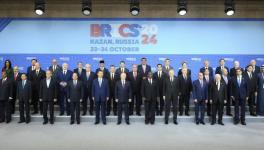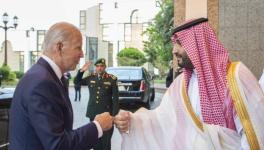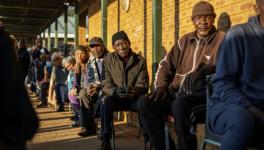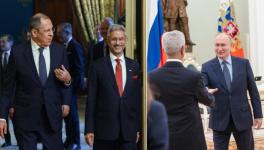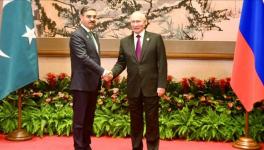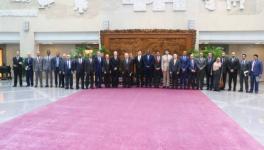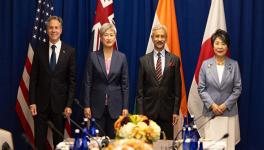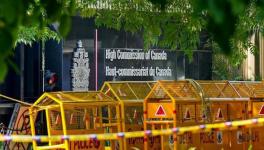A People’s Forum on OBOR and BRICS Meets in Hong Kong
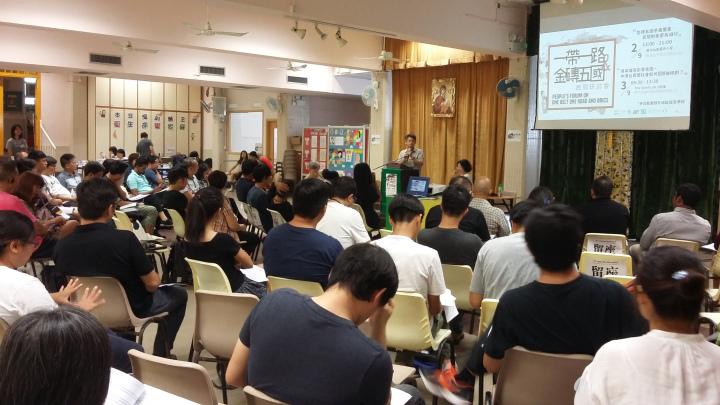
Over the weekend (2nd-3rd September) more than 100 participants met in Hong Kong for a People’s Forum on One Belt, One Road (OBOR) and BRICS. As BRICS leaders begin to meet for their 9th BRICS summit in Xiamen this week and the Hong Kong Trade Development Council prepares to host its second Belt and Road summit in Hong Kong aiming to attract investors and others in the business community next weekend, civil society members from eight countries and local Hong Kong people came together to share their experiences, offering a counter narrative to the neoliberal agendas usually promoted by the official summits that largely exclude these critical voices. Discussion at the forum showed how globalisation from above, as imposed by BRICS and OBOR, is being carried out at the expense of people and the environment.
Mung Siu Tat, the Chief Executive of the Hong Kong Confederation of Trade Unions (photo above), opened the forum speaking of the challenges and repression currently being faced by Hong Kong people in their struggles for democracy and against the government’s top down development projects. Asking whether democratic rights would really solve all the problems affecting people’s lives, he observed common problems faced by people around the world and how even in “democratic” countries, free trade agreements are often concluded through backdoor details without proper democratic consultation, and stressed the importance of international solidarity and the globalisation of struggle.
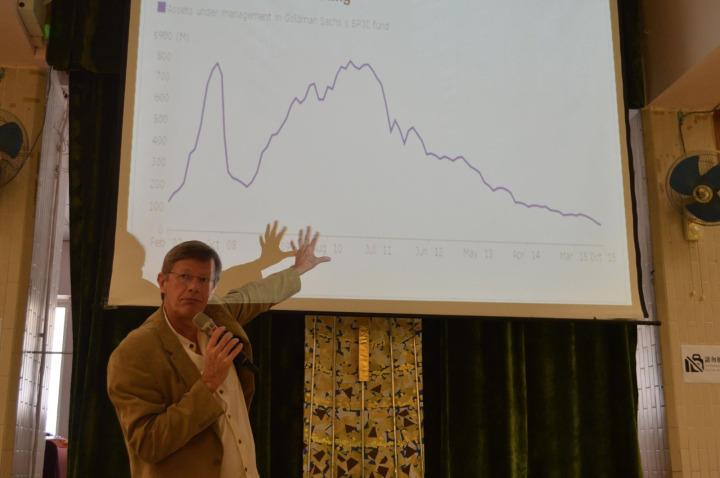
Patrick Bond, professor at the University of the Witwatersrand School of Governance, South Africa.
The current situation for the BRICS was first discussed by Patrick Bond, a professor in political economy at the University of the Witwatersrand, South Africa, who questioned whether the BRICS are in danger of spinning out of control. He pointed to how faced with rising geopolitical tensions as seen between India and China, increasing competition as China pushes ahead with OBOR, trends towards deglobalisation, overproduction, as well as financial vulnerabilities associated with spiralling debt problems which may lead to defaults by some countries, the ability of BRICS countries to work together is severely threatened. At the same time, as the BRICS continue to “talk left, but walk right” and look for a seat at the same table as the old imperialists at the expense of third world countries in their regions, it is important for civil society to forge more links and to keep up the pressure from below to counter their ‘sub-imperialist’ tendencies.
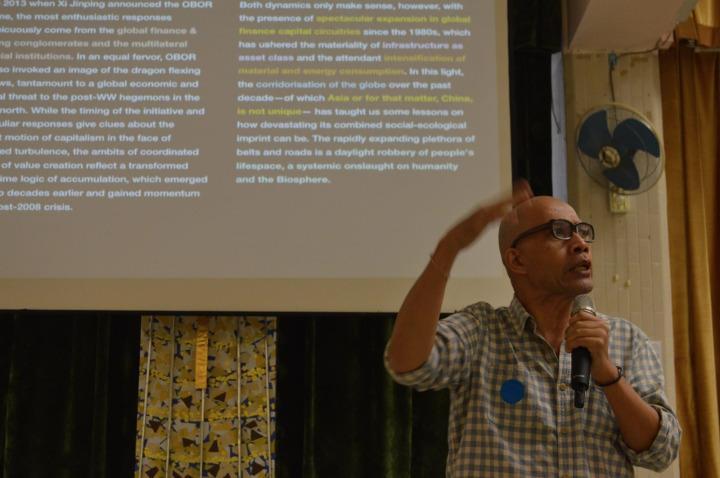
Dr. Hendro Sangkoyo, School of Democratic Economics, Indonesia.
The forum then addressed the topic of OBOR, China’s more recently initiated overseas investment strategy. Hendro Sangkoyo from the School of Democratic Economics in Indonesia looked at the infrastructure regime in Asia under OBOR, while Au Loong-yu from the Borderless Movement in Hong Kong focused on the goals of OBOR for the Chinese Communist Party in the context of China’s rise.
Locating OBOR as a project which does not represent something new but is a continuation of the logic within the capitalist system, Dr. Sangkoyo said that, “the rapidly expanding plethora of belts and roads is a daylight robbery of people’s lifespace, a systemic onslaught on humanity and the biosphere” and illustrated how similar previous infrastructure investment projects have led to environmental destruction and the death of ‘lifespace’ in Indonesia. Meanwhile Au Loong-yu disputed the CCP’s claim that it is pursing “peaceful development” and noted how China’s investments overseas have been carried out without proper assessments and monitoring from civil society, has often violated local laws and labour rights, whereas its involvement in Free Trade Agreements have helped contribute to a race to the bottom.
Activists from South Africa, Indonesia, Sri Lanka, Myanmar and India also spoke about the impacts of Chinese investments in their respective countries and regions. Bandile Mdlalose from the Community Justice Movement in Durban, for instance, drew attention to concerns about development around the port in Durban, which China is investing in, and the use of land for profit at the expense of housing for those living in informal settlements around the port. She expressed concerns that people would be left homeless as a result of this development. Myint Zaw from Myanmar discussed the situation concerning relations with China and Chinese investment under political transition. He also discussed negative feeling towards Chinese investment due to its top down nature and environmental cost and noted how investment by Chinese capital in the Myitsone Dam project had been halted following the backlash against it.
Comparisons between the Asian Development Bank (ADB) and the Asian Infrastructure Investment Bank (AIIB), established by China in 2015 and considered a key source of finance for OBOR projects, were also drawn by Yamada Taro from ATTAC Japan.
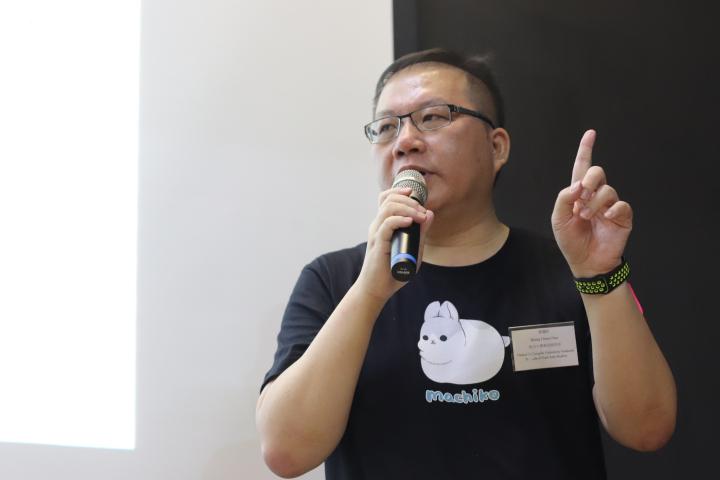
Dr. Huang Chien Chun, National Chengchi University Graduate Institute of East Asia Studies
The second day of the forum then focused on the impact of Chinese investment in Taiwan and Hong Kong. Amongst speakers, Dr. Huang Chien Chun, in discussing Chinese investment in Taiwan, drew attention to the role of resistance from below (such as expressed by the 2014 Sunflower Movement) that resulted from concerns about China using its investment to further its political agenda of reunification, in slowing the rate of this investment. Meanwhile speakers from the Liber Research Community discussed the importance of understanding Chinese capital and its impacts in Hong Kong as Hong Kong plays both the role of middleman in China’s OBOR investments while also lacking its own development plans. Hong Kong has been increasingly integrated into the development plans for the Pearl River Delta and China’s national development in spite of the needs of those living in Hong Kong. The Express Rail link, for instance, is not designed for the needs of people but is simply being constructed to fulfil Chinese government plans, while land is also being grabbed from residents and farmers for China’s development projects.
Many at the forum across the two days drew attention to the need for more bottom up grassroots organising locally as well as the need to build connections between movements internationally. According to Li Mei Siu, the Vice President of the Hong Kong Food and Environmental Hygiene Staff Rights Union, OBOR just replicates some of the negative impacts of earlier globalisation, only this time it is being driven by China. Indeed, with many facing similar struggles as a result of Chinese overseas investment and the neoliberal agendas of the BRICS, the forum showed the need for closer collaboration in the monitoring of these investments and actors by civil society globally and in giving support and solidarity to related struggles around the world.
The People’s Forum on OBOR and BRICS was organized by seven Hong Kong organisations which included Asia Monitor Resource Centre, Hong Kong Confederation of Trade Unions, the Editorial Board of Borderless Movement, Globalization Monitor, the Justice and Peace Commission of the Hong Kong Catholic Diocese, the Labour Education and Service Network and the Labour Committee of the Neighbourhood and Workers’ Service Centre.
Disclaimer: The views expressed here are the author's personal views, and do not necessarily represent the views of Newsclick.
Get the latest reports & analysis with people's perspective on Protests, movements & deep analytical videos, discussions of the current affairs in your Telegram app. Subscribe to NewsClick's Telegram channel & get Real-Time updates on stories, as they get published on our website.











